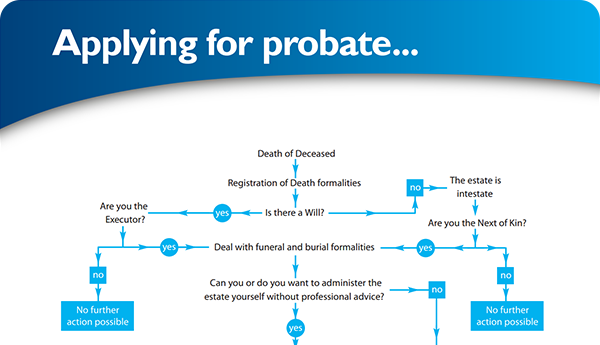Do You Have The Capacity To Write A Will?

Do You Have The Capacity To Write A Will?
What are the implications of Burns v Burns [2016] EWCA Civ 37?
This case involved an elderly woman with moderate to severe dementia who made two wills in 2003 and 2005, with the second contested on capacity grounds. It provides the latest statement from the Courts regarding the law on testamentary capacity (i.e. the mental capacity required to make a valid Will) and the basis upon which a Will can be overturned for lack of capacity or want of knowledge and approval.
In this case the England and Wales Court of Appeal upheld the Will of an elderly woman, despite clear evidence of a decline in her mental capacity at the time of execution: Mrs Eva Burns, was a widow with two sons, Anthony and Colin. Mrs Burns died aged 89 in May 2010. By her 2003 Mrs Burns provided that her 50% share in her only property was to be left entirely to her son, Anthony. Colin already owned the other half of the property, following an earlier transfer. The rest of her estate was to be divided between her said two sons equally.
However, in 2005, Mrs Burns instructed a solicitor to prepare a new Will in which she left her whole estate to be divided equally between her two sons. This meant that Colin would end up with a 75% share in the family home, and Anthony only 25%. There was clear evidence that Mrs Burns' mental health had declined prior to her 2005 Will. In October 2003 a "Mini Mental State Examination" revealed that Mrs Burns was not able to state the date (day, month, season or year) nor was she able to write a sentence or recall three common objects mentioned to her by the nurse only a few minutes earlier.
Further tests carried out in May 2005 and July 2005 produced similar results. The manager of the day care centre Mrs Burns attended in 2004 gave evidence that at that time Mrs Burns was suffering moderate to severe dementia and could not recall the manager's name. It also became apparent that the solicitor who prepared the 2005 Will failed to follow the "golden rule" of testamentary capacity*. In this case, the solicitor failed to do so, and even failed to ask simple, customary questions to verify Mrs Burn's state of mind.
In light of this evidence, Anthony, understandably, challenged the 2005 Will. He argued that the 2005 Will was invalid on the basis that his mother lacked mental capacity at the date of its purported execution, and on the basis that she did not understand or approve the contents. There was no dispute as to the validity of the 2003 Will and therefore, if the 2005 Will was invalid, the 2003 Will would be declared as the last Will and be admitted to probate.
On 12 March 2014, the trial judge criticised the solicitor for his ignorance of the "golden rule" and for some "gaps" in his documentation. Nevertheless, somewhat unexpectedly, the trial judge found the 2005 Will valid. The trial judge took the view that, even though he did not take the "golden rule" precautions, the experienced solicitor would probably have noticed any serious sign of a lack of capacity. The judge was also swayed to find the will valid, simply because it appeared rational and simple on the face of it.
Anthony appealed, asserting, amongst other things, that the judge did not give due weight to the evidence. His appeal was unsuccessful. While it was noted that the evidence clearly raised doubts as to Mrs Burns' capacity, the Court of Appeal found that the judge at first instance was entitled to make the findings which he did and concluded, amongst other things, that the dispositions set out in the 2005 Will were rational and simple and therefore it was more likely than not that Mrs Burns at least had capacity to recognise that what she was signing was a will in the form she had instructed (i.e. establishing testamentary capacity under the rule of Parker v Felgate [1883] 8 P.D. 171, Parker).
What does all this mean then? Well, this case should sound alarm bells to those who are considering a claim of lack of capacity or want of knowledge and approval. It is clear this case is going to make capacity claims exceptionally difficult where the Will is simple and appears rational, even where there is strong evidence of mental impairment.
If you are in any doubt about drafting a Will or fear it could be contested, seek proper, professional advice from The Probate Bureau Ltd. Your Will is arguably the most important document you will ever draft. Don't leave it to chance; phone 01920 443590 today.
*The golden rule provides that where a solicitor is instructed by an elderly testator, or has any doubt as to the capacity of the testator, the solicitor should take active steps to consider the issue of capacity, which can include seeking a medical opinion and having the Will witnessed or approved by a medical practitioner.
Back To BlogShare This Post
Recent posts
- When Do You Need Probate & When Is It Required? By The Probate Bureau , 26/07/2023
- Losing a Loved One at Christmas By Probate Bureau , 16/12/2020
- Probate - Your Questions Answered By Probate Bureau , 01/09/2020
2015 Archive
2016 Archive
2018 Archive
2019 Archive
2020 Archive
0 Archive
- December 1 posts
2023 Archive
- July 8 posts
Blog Categories
Find your way through the probate maze
Click here to follow our step-by–step probate process guide
×



